Criminal activity, more espionage, theology, librarian shenanigans, Alicia Malone… I had a mostly enjoyable reading month in March. I hope (1) you’ll find something interesting from my reading list and (2) you’ll share what you read.
Not pictured FICTION:
Flashfire (Parker #19, 1960) Richard Stark
Flashfire marks the first time in the Parker series that it felt like (1) too many plates were spinning in the air and (2) Parker wasn’t always acting like Parker. I found it unlikely he would pull a job with guys so reckless and fond of explosions just because they look cool. The book features another rarity: a “civilian” becomes involved in helping Parker recover from… let’s say, a setback that occurred during the job with his new pals. But the Parker novels are always entertaining, even if this one slipped a bit below Stark’s usual high standards.
From the photo FICTION:
The Riddle of the Sands (1903) Erskine Childers
Along with Rudyard Kipling's Kim (1901), The Riddle of the Sands is often considered one of the first British spy novels. What starts as a duck-hunting expedition in the Friesian Islands turns out to be a covert investigation of suspected German naval activity. The book, especially in its first half, is nowhere near as compelling as you might think but becomes bogged down in a torrent of nautical terms and descriptions. (If you're into that, you'll have a field day.) Maybe the book hasn’t aged well, or perhaps later espionage thrillers were…. well, more thrilling.
Trustee from the Toolroom (1960) Nevil Shute
If you remember Nevil Shute, it’s probably from reading his post-apocalyptic novel On the Beach in school. (It was popular for a while. Now, not so much.) In Trustee from the Toolroom (Shute’s final novel), Keith Stewart, a retired man with an uncomplicated life, finds himself the trustee of his young niece after the death of her parents. There’s adventure, humor, pathos, and suspense, none of it overdone. I found this at a bookstore in Oakland, California, and paid $12 for a British first edition without knowing a thing about it. I’m glad I did.
Revenge of the Librarians (2022) Tom Gauld
Gauld’s cartoons are just about everywhere, so if you haven’t seen them, you haven’t been paying attention. (So start paying attention.) Like many of us, Gauld had a lot of time on his hands during the pandemic, some of which comes through in these cartoon strips about librarians. Yep, he’s got us pegged.
Not pictured: NONFICTION
Life Together (1939) Dietrich Bonhoeffer
Theologian and anti-Nazi Dietrich Bonhoeffer has received much attention since his execution in 1945 at the Flossenbürg concentration camp in Bavaria. Life Together is less of a biographical work than a practical guide to everyday life as a Christian. This short book contains much wisdom.
From the photo NONFICTION:
Theogony and Works and Days (8th century BC) Hesiod
Theogony provides something of an origin story of the gods before they settled into their various characteristics and shenanigans. Works of Days delivers practical advice on marriage, agriculture, ethics, superstition, and more. The more things change, the more they stay the same.
Church Membership: How the World Knows Who Represents Jesus (2012) Jonathan Leeman
Last year Authority, also by Jonathan Leeman, was one of my favorite reads in theology, so when it came time to prepare to teach our church’s new members class, I wanted to read Leeman’s book on church membership. This book is solid, short, and enormously helpful. Although Leeman is a Baptist and I’m a Presbyterian, the differences we have are not dealbreakers. An excellent book.
Girls on Film: The Complete History of the Women Who Broke Barriers and Redefined Roles (2022) Alicia Malone
I was delighted to meet Alicia Malone at Noir City 22 in Oakland, California, in January and was not surprised to discover that her book is also delightful. Malone balances her love for classic films, her personal story, and her appreciation of women in the film industry. Seek it out.
Sophie Scholl and the White Rose (1986) Annette Dumbach, Jud Newborn
A few years ago, a friend loaned me Sophie Scholl: The Final Days (2005) on Blu-ray. It was a part of WWII history I’d never heard of, but the film stayed with me, refusing to be relegated to the status of just another movie I watched. When I found the book at a thrift store, I snatched it up. As you might expect, the book goes into much more detail and depth. If you haven’t seen the film, I’d recommend you watch it first, then pick up the book.
The Mortification of Sin (1656) John Owen
“Puritan” has become a negative word for a misunderstood group. Simply put, Puritans were serious about their relationship with God. That doesn’t mean they moped around wearing sackcloth and ashes (they didn’t) or never had a good time (they did), but they took the Bible and their faith seriously. Consequently, Puritan theologian John Owen (whose complete works cover 40 volumes, published by Crossway in a new edition) may be the most prolific and perhaps most revered Puritan writer.
So let me know what you read last month: good, bad, or meh.

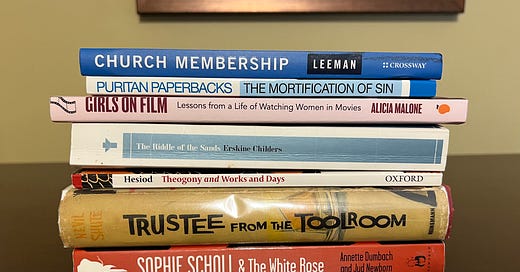



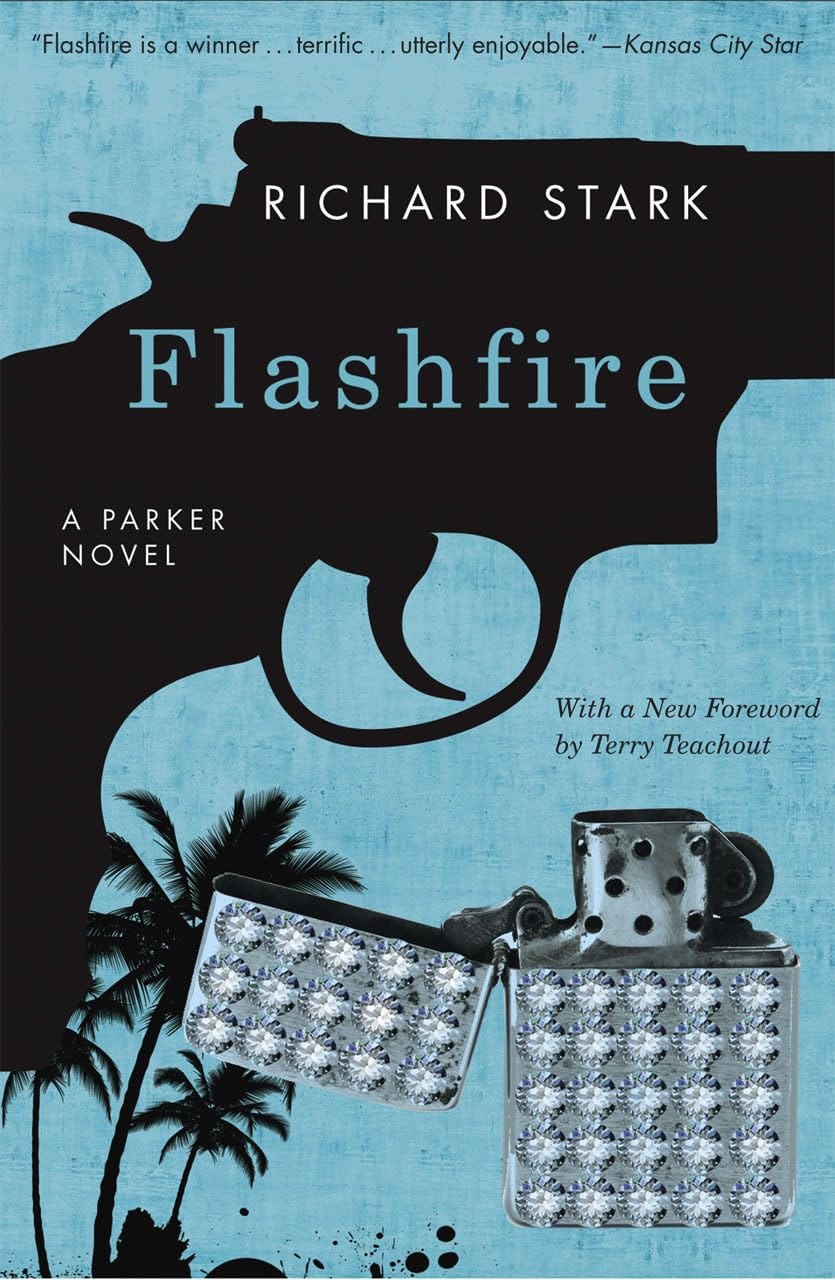


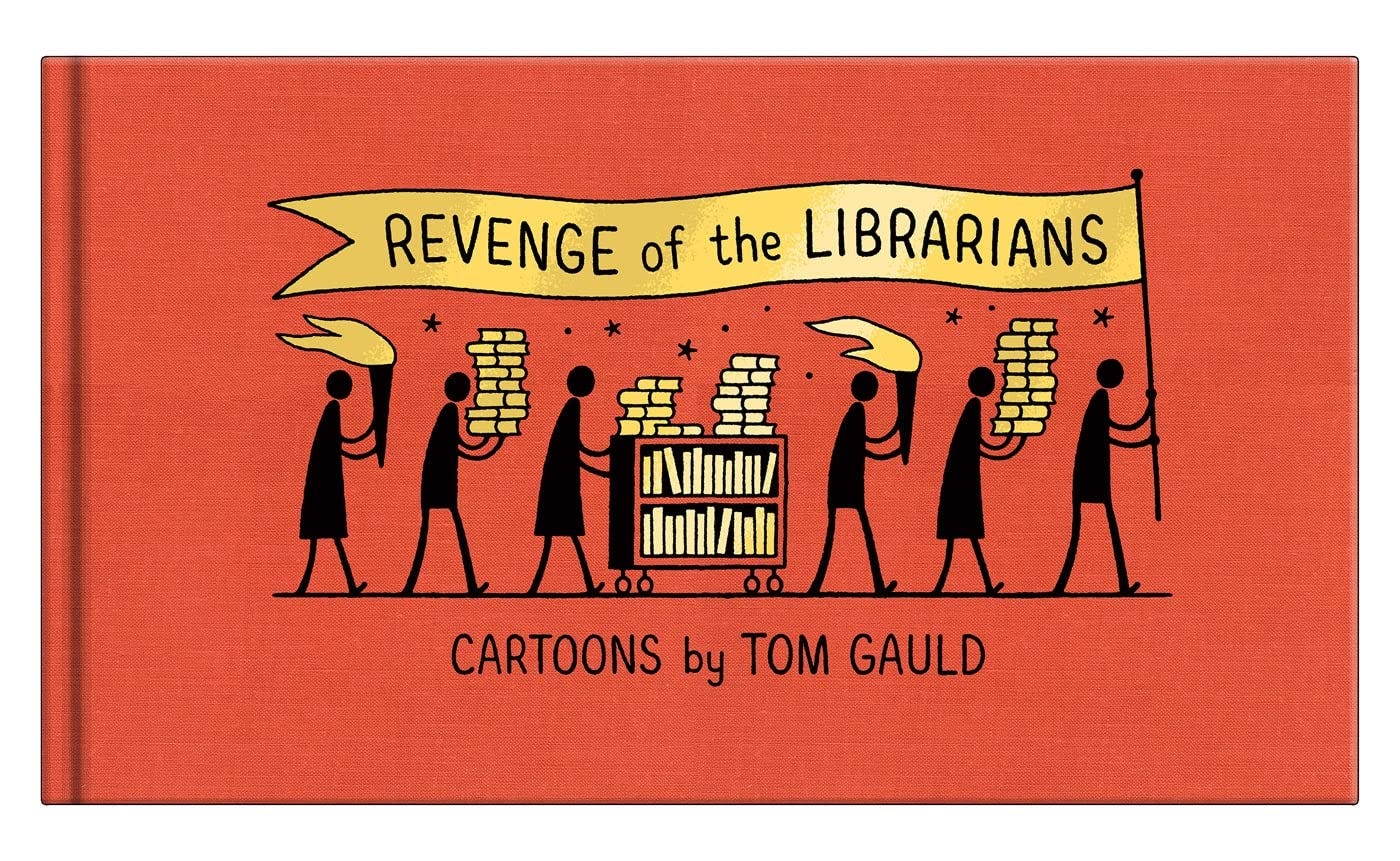

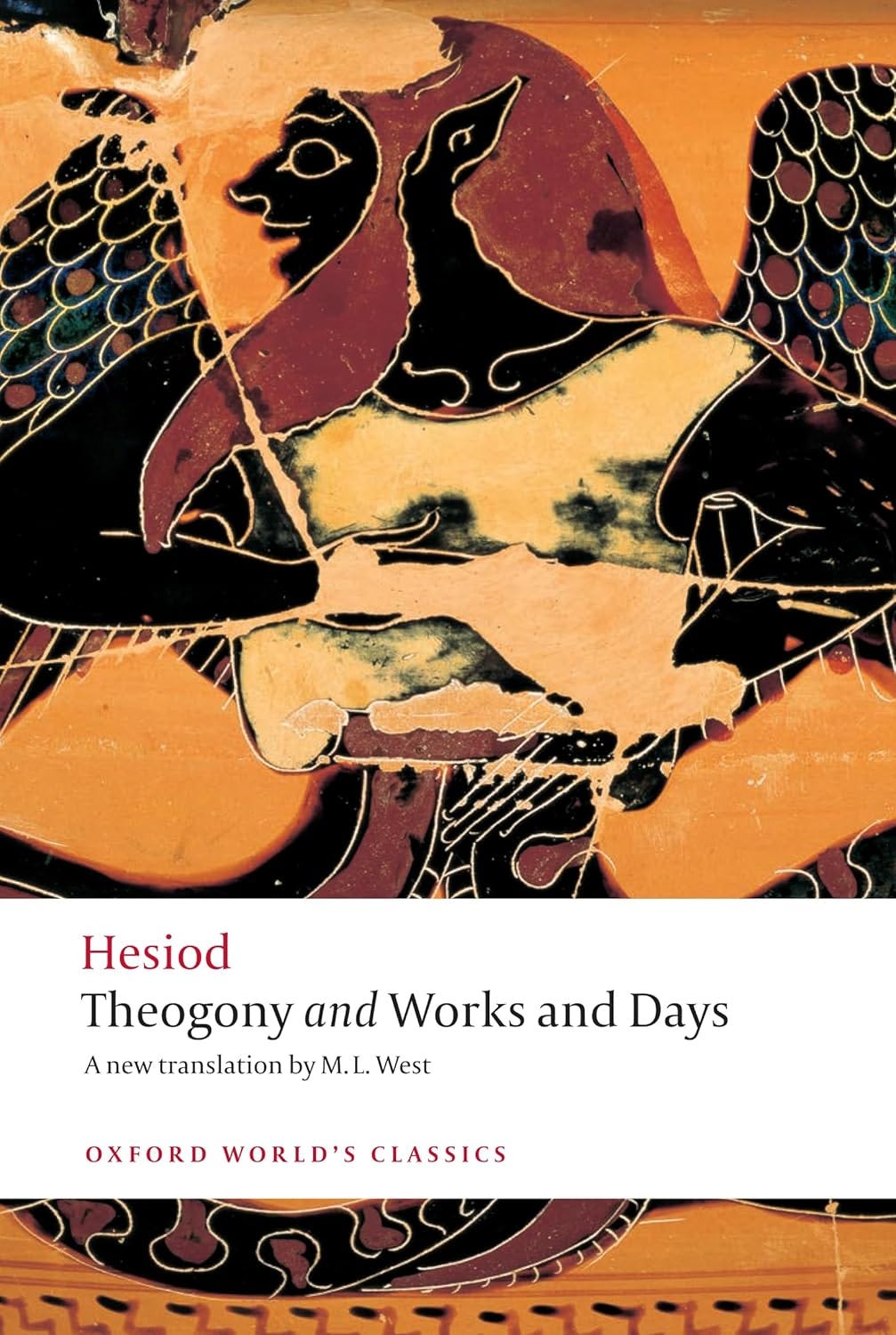
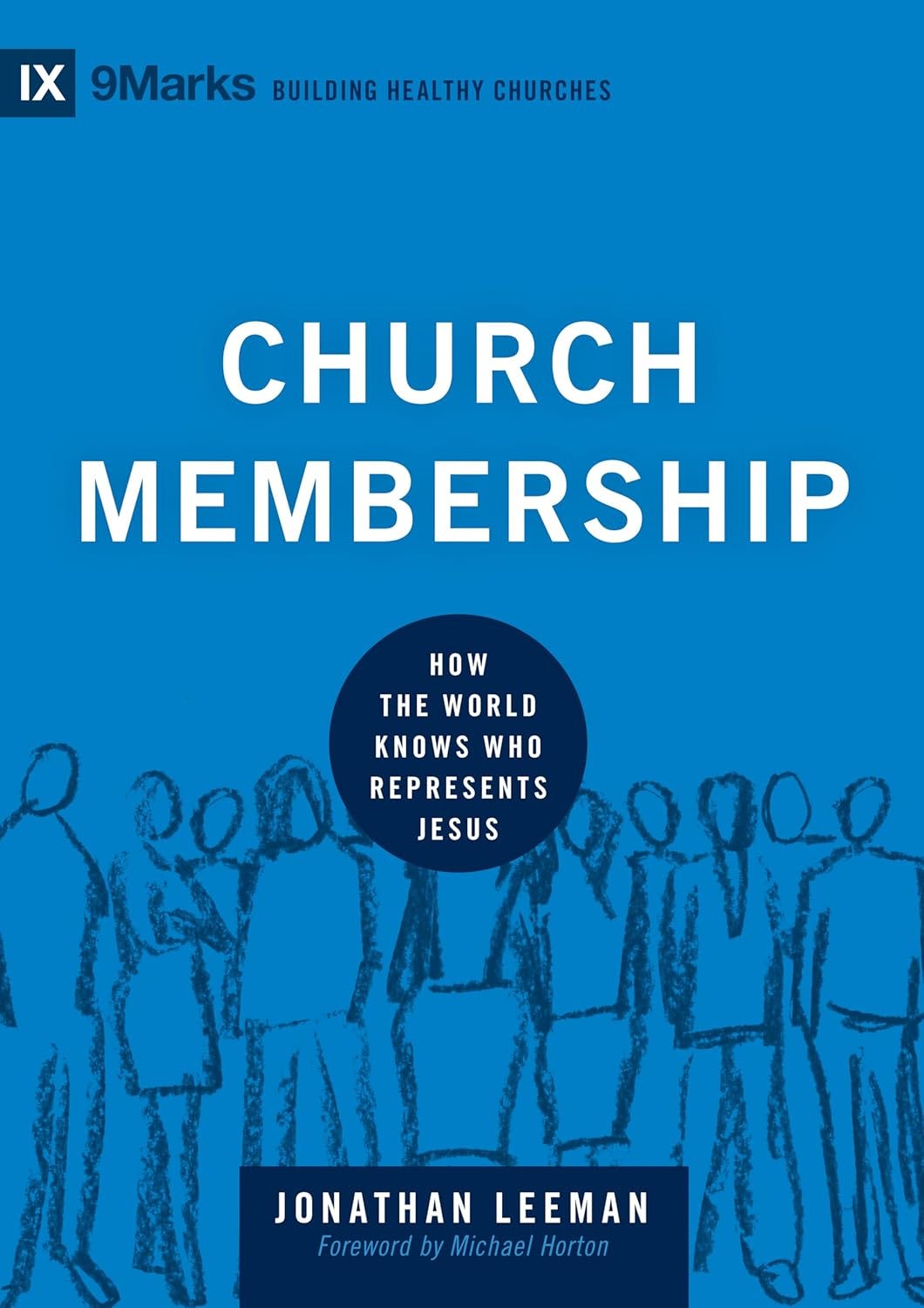

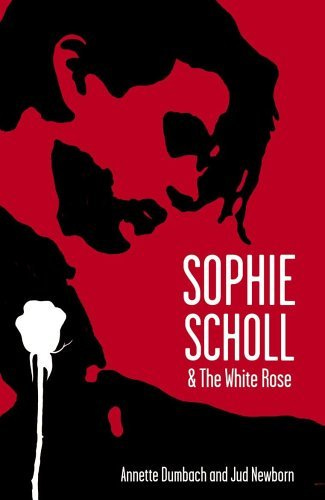
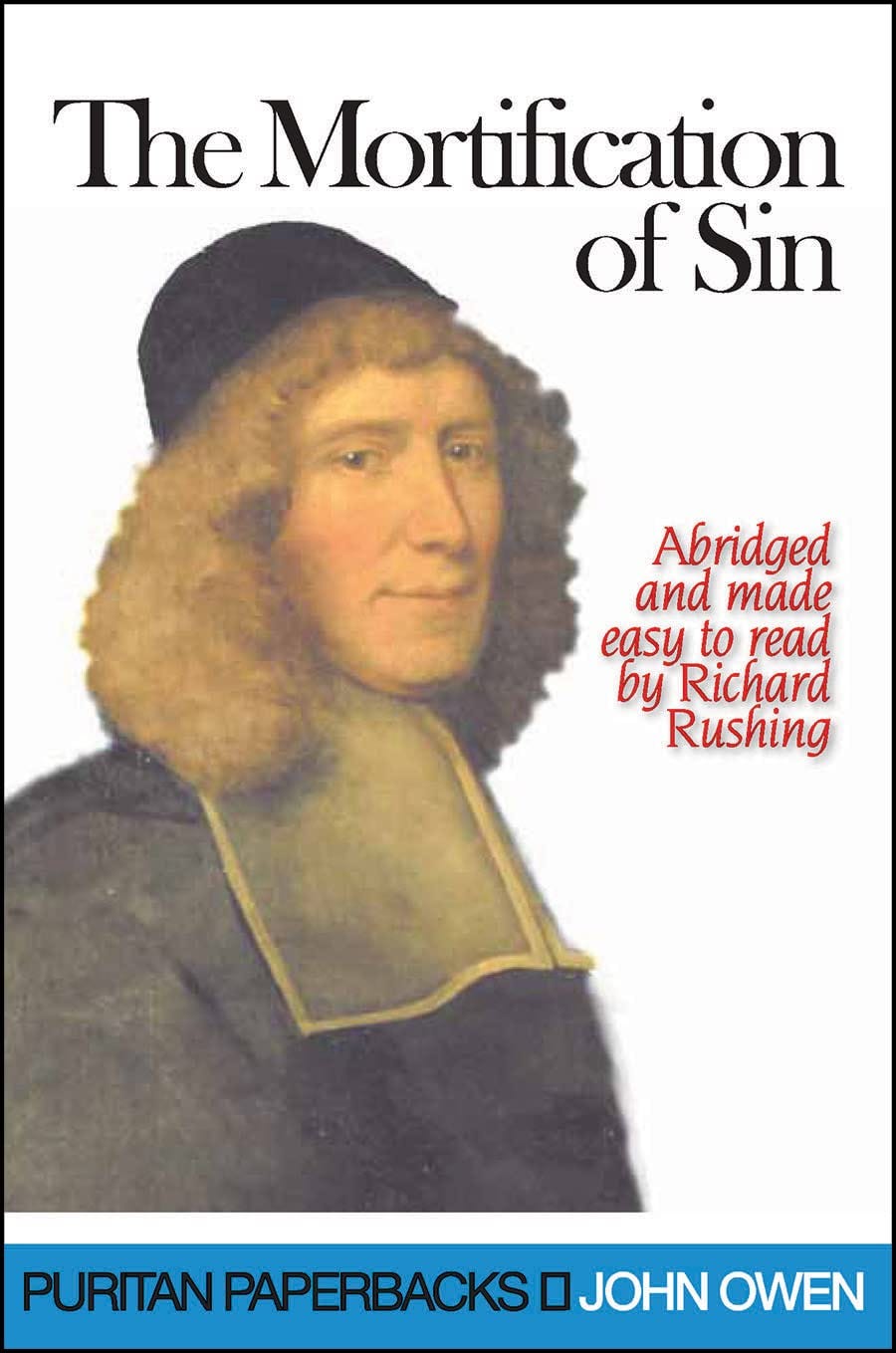
The Hesiod is on my back list of the classics to read. They are so short, I should just take the plunge. Interesting approach to the read. I've read a few lesser works from various decades like the Childers. I'm often surprised in a good way, but you never know how if they will resonate.
I read
- Last Post by Ford Madox Ford. It's the last book in the Parade's End tetralogy. Parade's End is a one of the great British WWI novels.
- The Good Soldier by Ford Madox Ford. A modernist classic. It is a sad story as he says, but so well written.
- The Postman Always Rings Twice by James M Cain. I think I read this before, or maybe just Double Indemnity. I've seen the film a number of times. It is so raw and brutish.
- Thieves Like Us - I love They Live by Night, and though this book differs quite a bit from the movie, I really enjoyed it.
- Pal Joey - by John O'Hara - I read just the letters. After a while it got a little tedious. The whole time I read it, I kept hearing Frank Sinatra in my head.
Girls On Film, Revenge of the Librarians, and Life Together all look like interesting reads to me.
I read the Ignat Avsey new translation of the brothers karamozov and it was fantastic. I had signed up to read it over the course of the year thru the Dostoevsky book club on substack but once i got engaged, tore thru it the first two weeks of March. I will continue following the articles and comments posted as that only builds upon it and it truly is a masterpiece. I have been wanting to learn more about HUAC in Hollywood but only after recently watching Bette Davis in Storm Center 1956, began actively seeking out books about it. Happened to come across a heavy tome in one of those free little library boxes, called the Oxford Guide to American History, published in 1999 so i lugged it home and learned a good deal from a few of its expert sources on that very subject. Learning more about all kinds of American military history from this guide, the various authors make it anything but dry—but i doubt i will have read even half of it by next March!